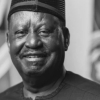Kenyan Diaspora Brides Drive Nairobi Wedding Planning Boom With High-Budget Outsourcing

Kenya's wedding industry is undergoing a significant transformation, spurred by the increasing number of diaspora brides seeking meticulously planned, high-budget ceremonies.
This trend is redefining traditional notions of creativity, control, and cultural practices within the sector. Professional wedding planners in Nairobi and other regions are now essential in orchestrating these elaborate events remotely, resulting in an era of contractually precise and commercially scaled celebrations.
The Rise of Delegated Wedding Planning
For Kenyan brides living abroad, entrusting a local planner with the intricate details of their Nairobi weddings has become both a logistical necessity and a leap of faith. Emma Ndung'u, residing in Kent, Washington, exemplifies this trend. She allocated Sh4 million to her Nairobi wedding, engaging a local planner whose services amounted to seven per cent of the total budget.
"It's like having an extra hand which gives you peace of mind," Emma said, dismissing the idea that delegating responsibilities diminishes a bride's personal involvement or vision.
Emma's experience highlights a shifting perception where delegation is seen as strategic collaboration rather than relinquishing control. Over a four-month period, she delegated full responsibility for décor, catering, vendor selection, and even the bridal car model.
Similarly, Grace Wangugi, a Kenyan based in the United States, spent Sh5.2 million on her wedding, with her planner receiving eight per cent of the overall budget. The year-long planning process included regular video consultations, budget reviews, and vendor selections, culminating in an intensive two-week preparation period upon her arrival in Kenya.
"I can be creative, but I knew my planner would deliver," Grace reflected, emphasising her desire for aesthetic finesse and logistical peace of mind. Her choice of a family friend as her planner underscores the critical role of trust and familiarity in diaspora weddings.
Industry Experts Weigh In
Jane Ndegwa, a veteran wedding planner, notes a consistent increase in international demand, primarily driven by referrals within diaspora communities. Many of her clients are professionals who, despite having substantial budgets, lack the time and logistical capacity to manage their wedding arrangements.
"The majority of my clients already know what they want. They just don't have the time," Jane explained, positioning herself as a conduit between the bride's vision and its execution.
Her services encompass thematic conceptualisation and vendor coordination, often assuming full creative control within a framework developed jointly with the bride.
Contractual Agreements
Even with wide-ranging responsibilities, the bride's input remains crucial, particularly for sensitive decisions like religious venues, menu preferences, and bridal vehicles. Planners like Jane operate within formalised structures, including signed contracts and percentage-based fees, which typically range from seven to ten per cent of the wedding budget, depending on the complexity. These agreements are designed to safeguard both parties and provide clarity to an often emotionally charged process.
While official figures on the sector's size are scarce, industry estimates indicate that weddings, especially during peak seasons in April and December, generate billions annually across ancillary services such as catering, décor, entertainment, and photography. Wedding planning itself is increasingly becoming a standalone profession, complete with internal teams, service tiers, and branding strategies.
Cultural Shift and Empowerment
Contemporary brides, both local and abroad, view outsourced planning as practical and empowering. Elizabeth Muthoni, who held a traditional ceremony in Gilgil in 2024, hired a planner not to surrender control, but to navigate market realities and reconcile her minimalist preferences with her husband's desire for opulence.
"I wanted something intimate that reflected my personality," she said, highlighting the planner's role in achieving this balance.
A working professional with limited time, Elizabeth saw the planner as a guide rather than an overseer.
"I want things to work a certain way and when they don't, I get frustrated," she explained.
By outsourcing the operational burden, she conserved emotional energy while maintaining creative input. Elizabeth also refutes claims that outsourcing diminishes originality.
"The planner relies on you, on your vision. You give her a roadmap and she helps you reach the destination."
As more brides seek tailored experiences from abroad, planners are compelled to expand their offerings, refine logistical operations, and cultivate reputational capital across borders. Contracts, referrals, and client relationship management have become essential pillars of the trade.
Kenya's wedding planning sector is not only responding to market demand but also shaping how weddings are imagined, valued, and remembered. From Kent to Nairobi, Washington to Gilgil, the journey of the modern Kenyan bride increasingly begins with a signed contract, a video call, and a leap of trust.








Add new comment